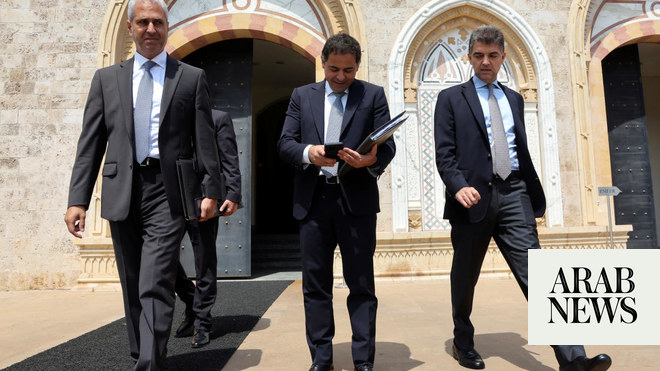
Misery loves company. Just ask the leaders of Germany, France, Spain, Greece and numerous other European nations. Most of these leaders began 2018 cruising smoothly and almost without any challenge to their authority — neither at home nor at European level.
Now, however, Spain’s Prime Minister Mariano Rajoy has lost his job, German Chancellor Angela Merkel — Europe’s longest-serving current leader — has seen a string of severe reversals, and even French President Emmanuel Macron, often called “Jupiter” due to his unchallenged position, finds his popularity trawling the bottom and his government in tatters. Italy, meanwhile, now has a very awkward coalition of extreme left and extreme right parties that is not expected to hold for too long.
With Brexit supposed to come into effect on March 29, 2019, or less than five months from now, the EU is facing the most challenging period in its history. At moments like these, strong leadership can make all the difference. Yet the four biggest European countries find themselves without a strong and decisive leadership precisely at the moment when not only their individual nations but also the EU needs a strong leader.
For most of its history, the EU has benefited from strong leadership provided by Germany and France, almost always acting in cohesion. This leadership has been at the heart of all key decisions and achievements of the EU — from the emergence of the single market to the adoption of a single currency as well as numerous other developments. A good chemistry between the German and French leaders has been at the center of coordinated actions by these two countries. However, this relationship seems to have lost some of its oomph since Macron became the French president in May 2017 due to the reported unease between him and Merkel.
Merkel’s position at the helm of Germany and indeed the EU weakened significantly last year, when the parliamentary elections produced a highly fractured verdict, forcing her into an uneasy coalition with the socialists. Subsequent reverses in several state elections have only marginalized Merkel further, leading to her announcing this week that she would not seek reelection as her party leader in December and would stand down as chancellor in 2021.
Across the border, Macron has also seen his broad support in France literally evaporate over the last 10 months, with his approval ratings plunging to below 30 percent. Earlier hailed as a much-needed reformer for France, Macron is now seen largely as an arrogant president, working for the richest 1 percent of society while abandoning the poor. Macron’s recent attempt to inject fresh blood into his Cabinet was received coldly by the French media and politicians alike.
The strongest leaders in Europe today are those who are bitterly opposed to the EU.
Ranvir S. Nayar
Besides Germany and France, the only countries of consequence within the EU are Italy, Spain and Poland. Poland’s government has been facing sharp criticism from the EU over its attempts to weaken the judiciary’s independence and some other policies that go against the bloc’s norms. Hence, it is hardly likely to be of help in the discussions with the UK. Italy is being governed by two staunchly anti-Europe leaders in an unlikely coalition of extreme left and extreme right parties, and Spain has seen the conservative Rajoy displaced in a bloodless and almost effortless parliamentary coup by a young socialist leader, who lacks a parliamentary majority.
These developments mean that the strongest leaders in Europe today are those who are bitterly opposed to the EU, such as those in Austria and Hungary. For Europe, the timing of this fragile leadership could not have been worse. With less than five months to go before Brexit comes into effect, the EU needs a strong, cohesive and well-coordinated leadership to carry out the complex and tedious negotiations with the UK on dozens of issues, the outcome of which will have serious long-term implications for the entire EU. For example, the question of the single market, the rights of EU citizens living in the UK and the question of allowing British financial services firms free access to the European financial markets.
The EU and Britain have in principle agreed on a transition period of nearly two years, meaning the new rules governing trade, security and movement of people between the EU and the UK will not come into force until the beginning of the year 2021. However, the two still need to reach an agreement before March 29 on the rules and the basic conditions governing Brexit. They have expressed hopes that an agreement of sorts would be reached by mid-November. But, for that to happen, the EU leaders need to be focused on their response to Brexit and the future of the EU without the UK. Instead, both Merkel and Macron are busy navel-gazing as the domestic issues in their countries have topped their agendas, leaving little time to focus on the Brexit nitty-gritty.
European Commission officials may be the ones involved in the daily grind of negotiations with their British counterparts, but the situation is so unprecedented and challenging for the EU and UK that, even at the best of times and with their attention entirely focused on dealing with Brexit, the task would be anything but easy.
It is not just domestic issues that are acting as a distraction for the EU — its attention has also been diverted, forcibly, toward the daily statements and declarations being made by US President Donald Trump on issues ranging from trade and climate change to security and migration. Important as they all might be, all of these issues are currently little more than irritants to a highly dispirited and distracted European leadership.
Ranvir S. Nayar is managing editor of Media India Group, a global platform based in Europe and India, which encompasses publishing, communication, and consultation services.
Disclaimer: Views expressed by writers in this section are their own and do not necessarily reflect Arab News" point-of-view












